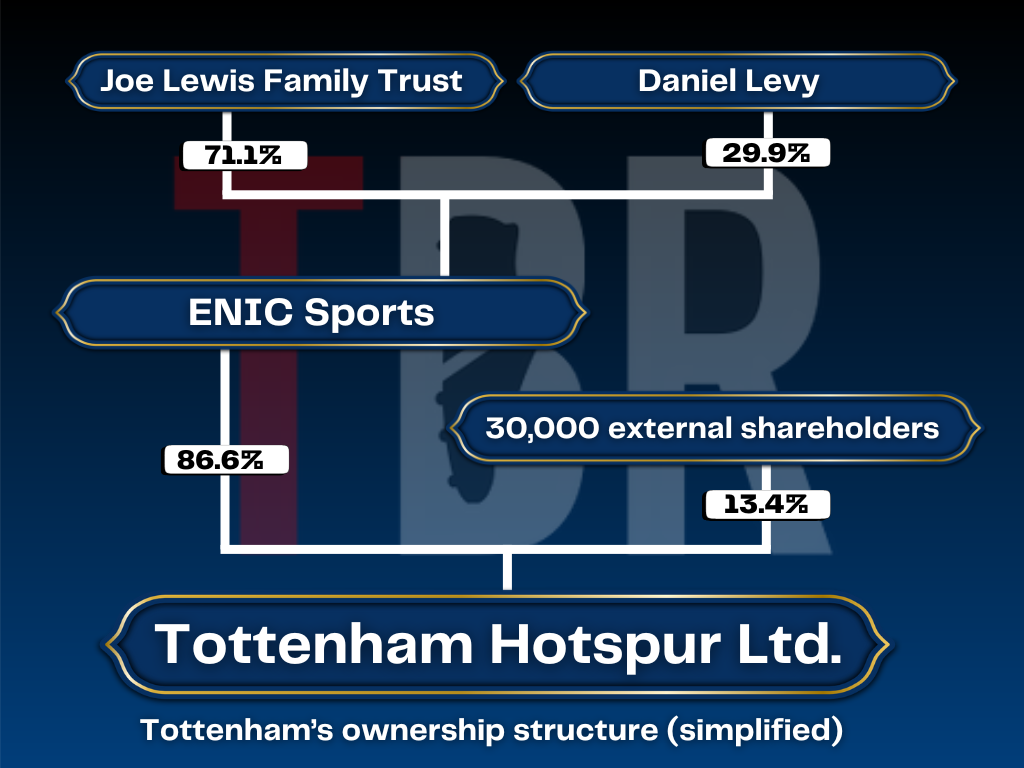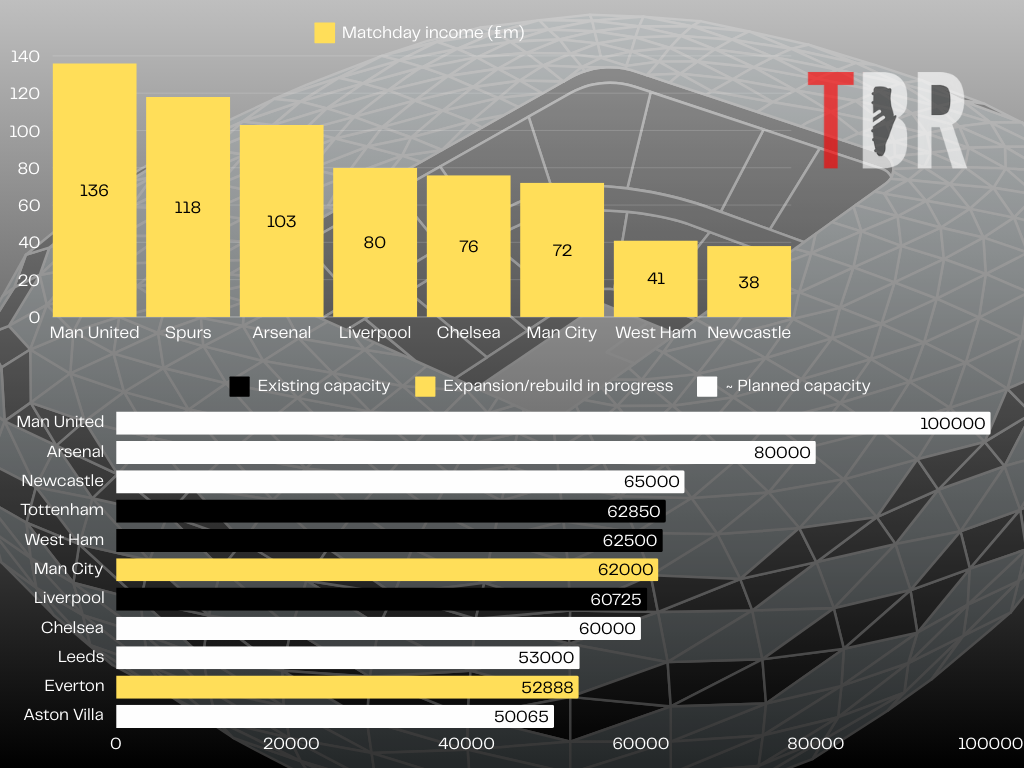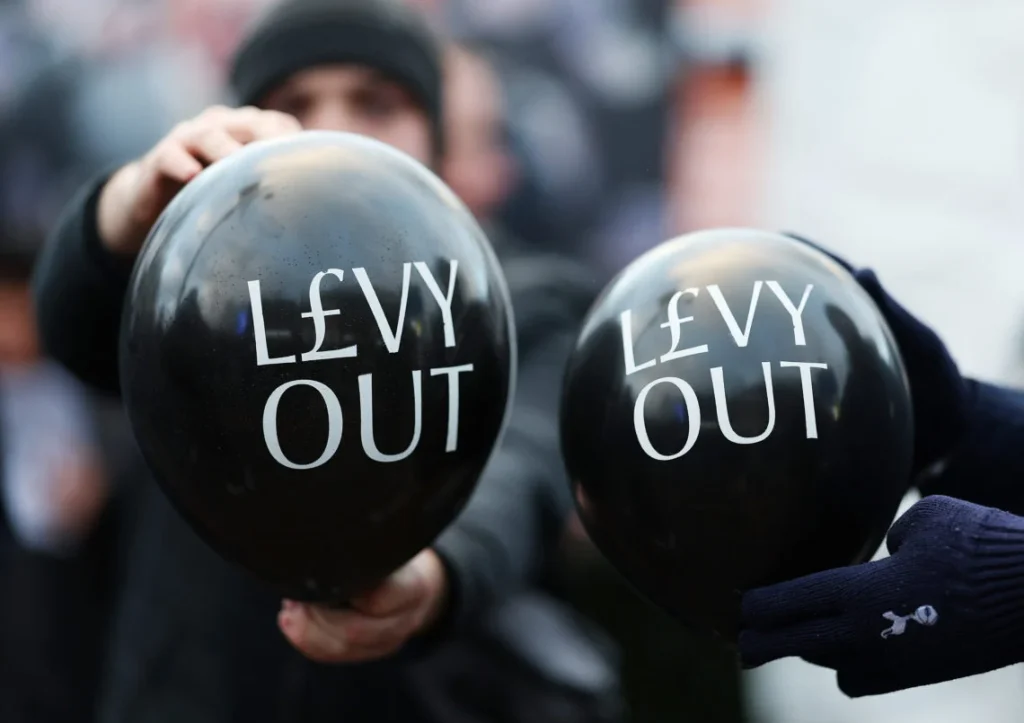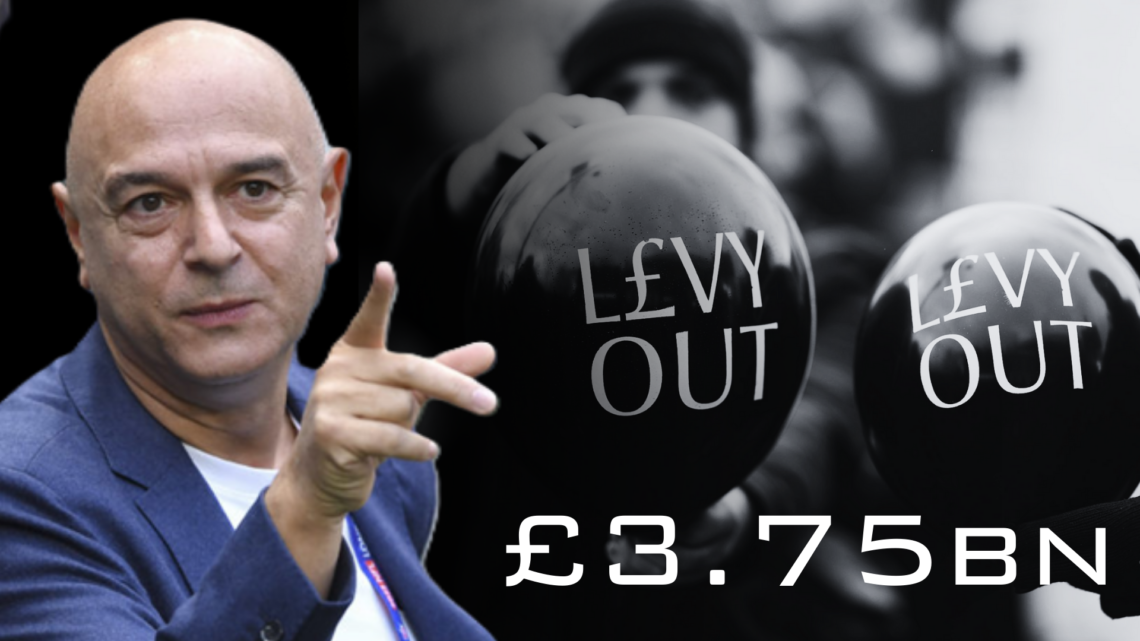Daniel Levy, chairman and co-owner of Tottenham Hotspur, understands the harsh realities of Premier League finance—if you don’t have a seat at the table, you’re on the menu. Since Joe Lewis’ legal troubles in 2024, Levy has become the undisputed leader of Tottenham and ENIC, which owns 85% of the club.
Operating Spurs like a publicly traded entity, Levy has ensured the club remains financially robust, with approximately 30,000 external shareholders still holding stakes as a legacy of its stock market past.
Nearly 30 years after becoming the first football club to list on the London Stock Exchange, Tottenham delisted in 2012 under Levy’s direction. The move was critical for securing the funds needed to construct their state-of-the-art stadium.
As the longest-serving and highest-paid executive in the Premier League, Levy orchestrated a financial strategy that raised approximately £800 million through a combination of bank loans, private investment, and grants.

The decision to privatize paid off. Tottenham Hotspur Stadium, which cost £1.33 billion, ranks among the world’s most expensive stadiums. Unlike many clubs burdened by rising interest rates, Spurs locked in their loans at fixed rates below 3%, shielding them from the economic turbulence caused by the pandemic.
Their annual debt repayments of £20-25 million are easily offset by the stadium’s revenue, which surpasses £100 million per year, even in underwhelming seasons. The 62,850-seat venue has also fueled a 250% surge in earnings from sponsorships, events, and merchandise.
The World’s Most Expensive Stadiums
| Stadium | Cost (Adjusted for Inflation) | Location | Opened |
|---|---|---|---|
| SoFi Stadium | $5.5 billion | California, USA | 2020 |
| MetLife Stadium | $1.99 billion | New Jersey, USA | 2010 |
| Allegiant Stadium | $1.90 billion | Nevada, USA | 2020 |
| Wembley Stadium | $1.85 billion | London, UK | 2007 |
| Yankee Stadium | $1.79 billion | New York, USA | 2009 |
| AT&T Stadium | $1.79 billion | Texas, USA | 2009 |
| Mercedes-Benz Stadium | $1.56 billion | Atlanta, USA | 2017 |
| Singapore National Stadium | $1.41 billion | Kallang, Singapore | 2014 |
| Tottenham Hotspur Stadium | $1.33 billion | London, UK | 2019 |
| Optus Stadium | $1.17 billion | Perth, Australia | 2017 |
Tottenham’s valuation has skyrocketed, with Levy actively seeking new investors at a reported price of £3.75 billion. Spurs have transformed into a financial powerhouse, consistently ranking among the world’s top 10 richest football clubs.

While they have long been recognized as part of England’s historic “Big Five,” financial constraints once held them back from competing with their wealthier rivals. Today, their revenue rivals that of North London neighbors Arsenal, a stark contrast to a decade ago when their earnings were barely half.
Despite their financial success, silverware has remained elusive. Since Tottenham last won a major trophy, numerous other clubs have bolstered their trophy cabinets.
Major Trophies Won Since Tottenham’s Last Triumph
| Club | Major Honors |
|---|---|
| Manchester City | 8 Premier Leagues, 2 FA Cups, 6 League Cups, 1 Champions League, 1 Super Cup, 1 Club World Cup |
| Manchester United | 4 Premier Leagues, 2 FA Cups, 4 League Cups, 1 Champions League, 1 Europa League, 1 Club World Cup |
| Chelsea | 3 Premier Leagues, 4 FA Cups, 1 League Cup, 2 Champions Leagues, 2 Europa Leagues, 1 Super Cup, 1 Club World Cup |
| Liverpool | 1 Premier League, 1 FA Cup, 3 League Cups, 1 Champions League, 1 Super Cup, 1 Club World Cup |
| Arsenal | 4 FA Cups |
| Leicester City | 1 Premier League, 1 FA Cup |
| Wigan | 1 FA Cup |
| Portsmouth | 1 FA Cup |
| Birmingham | 1 League Cup |
| Swansea | 1 League Cup |
| West Ham | 1 Conference League |
Spurs recently secured a 4-1 victory over Ipswich Town but currently sit 12th in the Premier League standings. Frustration among supporters is growing, with protests in North London intensifying, targeting club ownership rather than manager Ange Postecoglou. The latest wave of speculation regarding potential Qatari investment has reignited hopes that Levy might finally be prepared to sell.
Reports suggest that private Qatari investors—not linked to a sovereign wealth fund—are considering buying into Spurs. A phased buyout has been discussed, potentially allowing Levy to remain chairman.
However, experts believe some form of state-backed investment could still be involved, aligning with past reports that Qatar Sports Investment (QSI) and the Qatar Investment Authority have expressed interest in the club.
QSI’s ownership of Paris Saint-Germain complicates the situation, as UEFA regulations prohibit two clubs under the same ownership from competing in European competitions.
However, signs indicate that Qatar’s commitment to PSG may be wavering, given ongoing official investigations and shifting geopolitical priorities. If a Qatari-backed Spurs takeover materializes, Nasser Al-Khelaifi—one of football’s most influential figures—would likely play a pivotal role.
Al-Khelaifi, the president of PSG, QSI, the European Club Association, and a UEFA executive committee member, shares a close relationship with Levy. In 2023, the two met for private talks in London, reportedly discussing potential investment, despite official denials from the club.

Their relationship, however, contrasts sharply with Al-Khelaifi’s ongoing feud with Lyon owner John Textor. A leaked recording of a Ligue 1 meeting revealed a heated exchange between the two, where Al-Khelaifi branded Textor a “cowboy” for questioning his dominance in media rights discussions.
Textor, the largest shareholder in Crystal Palace, could also play a role in shaping Tottenham’s future. He aims to increase his stake in Palace but has encountered resistance from co-owners Steve Parish, Josh Harris, and David Blitzer.
If Textor decides to sell his stake, Blitzer—previously linked to a minority investment in Spurs—could emerge as a potential partner for Levy. Premier League regulations prohibit dual ownership, meaning Blitzer would need to relinquish his 38% stake in Palace before any involvement with Tottenham.
While the future of Spurs’ ownership remains uncertain, one thing is clear—Daniel Levy is steering the club toward an era of financial dominance. Whether that translates into on-field success remains to be seen, but the winds of change are blowing in North London, and a high-stakes battle for control of Tottenham Hotspur may be on the horizon.

